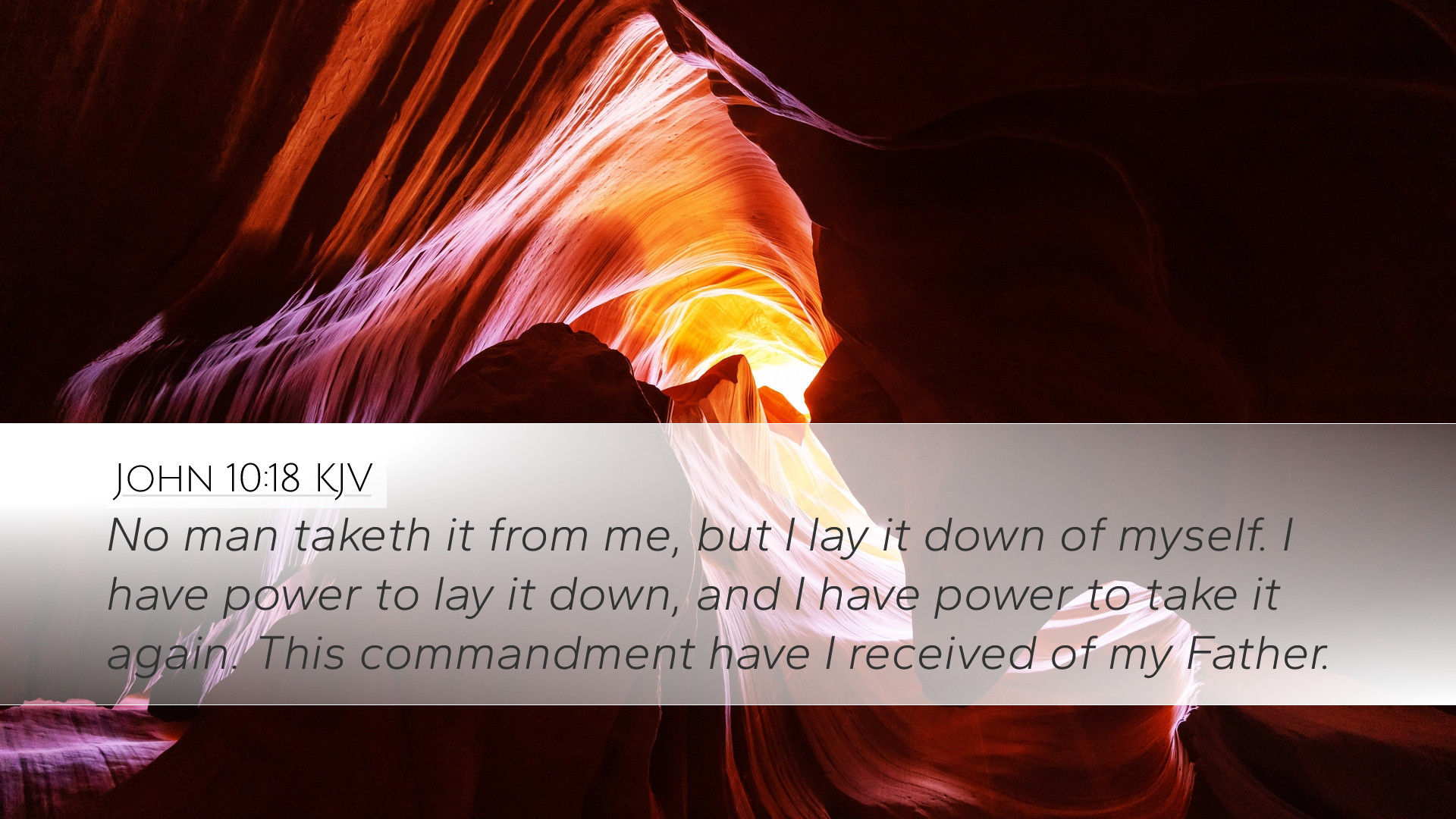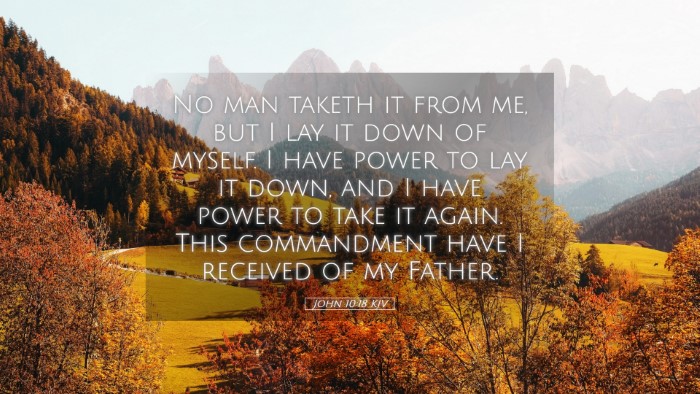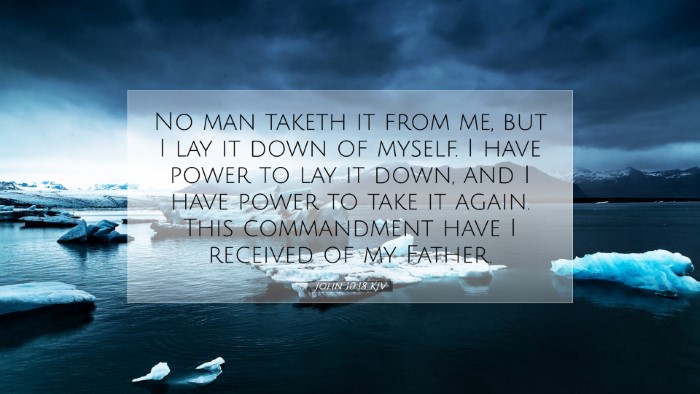Commentary on John 10:18
Verse: “No one takes it from me, but I lay it down of my own accord. I have authority to lay it down, and I have authority to take it up again. This charge I have received from my Father.” (John 10:18, ESV)
Introduction
The words of Jesus in John 10:18 articulate profound truths about His mission, identity, and the voluntary nature of His sacrifice. This verse serves as a culmination of the discourse on the Good Shepherd, emphasizing the authority of Christ over His own life and His intimate relationship with the Father. Understanding this passage deeply enriches our comprehension of redemption and the divine plan for humanity.
Exegesis and Thematic Analysis
John 10:18 is a pivotal statement that encompasses the following themes:
- Voluntary Sacrifice: Jesus emphasizes that His death is not the result of external compulsion but an act of will.
- Divine Authority: His authority to both lay down and take up His life underscores His divine nature and mission.
- Obedience to the Father: The connection to the Father’s command delineates Jesus’ role within the Trinity and highlights His obedience.
Commentary Insights
1. Matthew Henry's Commentary
Matthew Henry highlights the voluntary nature of Christ’s sacrifice, stating that Jesus did not merely allow Himself to be taken but willingly chose to lay down His life for His sheep. Henry notes, “He was not a mere martyr, but a willing sacrifice; His offer was voluntary.” This decision of Christ underscores His love and commitment to His people. Furthermore, Henry discusses the dual aspect of Christ's authority: while He has the power to die, He also possesses the authority to rise, thereby affirming His dominion over death itself.
2. Albert Barnes' Commentary
Albert Barnes elaborates on the authority assigned to Jesus to take up His life again. He remarks, “This was a promise of His resurrection, and it implies the perfect control which He had over His own life and death.” Barnes emphasizes that the resurrection is a crucial aspect of Jesus’ claim. The ability to lay down His life and then take it up again illustrates the power of Christ as the Redeemer, who conquers sin and death for those who believe. His interpretation also highlights the relationship between Jesus and the Father, asserting that this authority was given to Him as part of His divinely ordained mission.
3. Adam Clarke's Commentary
Adam Clarke provides a theological perspective on this verse by connecting it to the doctrine of Christ's atonement. He articulates, “The laying down of His life is the foundation of spiritual life for humanity.” Clarke underscores that while His death was a significant act of obedience, it was also an act of love intended for the redemption of His followers. Furthermore, Clarke points out the importance of the Father's command in this context, noting that there exists a divine plan that necessitates both the death and resurrection of Christ.
Theological Implications
The implications of John 10:18 are far-reaching for various aspects of Christian doctrine:
- Christology: This passage affirms the divine nature of Christ as both fully God and fully man, possessing authority that transcends mortal limitations.
- Soteriology: The concept of voluntary sacrifice is central to understanding salvation; it emphasizes the loving nature of God's redemptive plan.
- Trinitarian Relationship: The dynamics of authority between Jesus and the Father provide a glimpse into the relational aspect of the Trinity, clarifying roles in the redemptive narrative.
Application for Pastors and Theologians
The insights from John 10:18 should inspire reflections on pastoral care and preaching. Here are some practical applications:
- Encouragement in Suffering: Pastors can help congregants understand that Christ’s voluntary sacrifice is a source of hope during personal trials.
- Authority in Worship: Acknowledging Christ's authority invites a deeper reverence in worship and a commitment to obedience.
- Evangelistic Motivation: The voluntary nature of Jesus’ sacrifice serves as a foundational message in evangelism, showcasing God’s love for humanity.
Conclusion
In John 10:18, we find a profound encapsulation of Christ’s authority, sacrifice, and relationship with the Father. The insights from the public domain commentaries converge to affirm the significance of this verse in theological understanding and practical application. As pastors, theologians, and students delve into this passage, it calls for a deep appreciation of the love and sovereignty of Jesus Christ, inspiring lives transformed by His sacrificial act.


